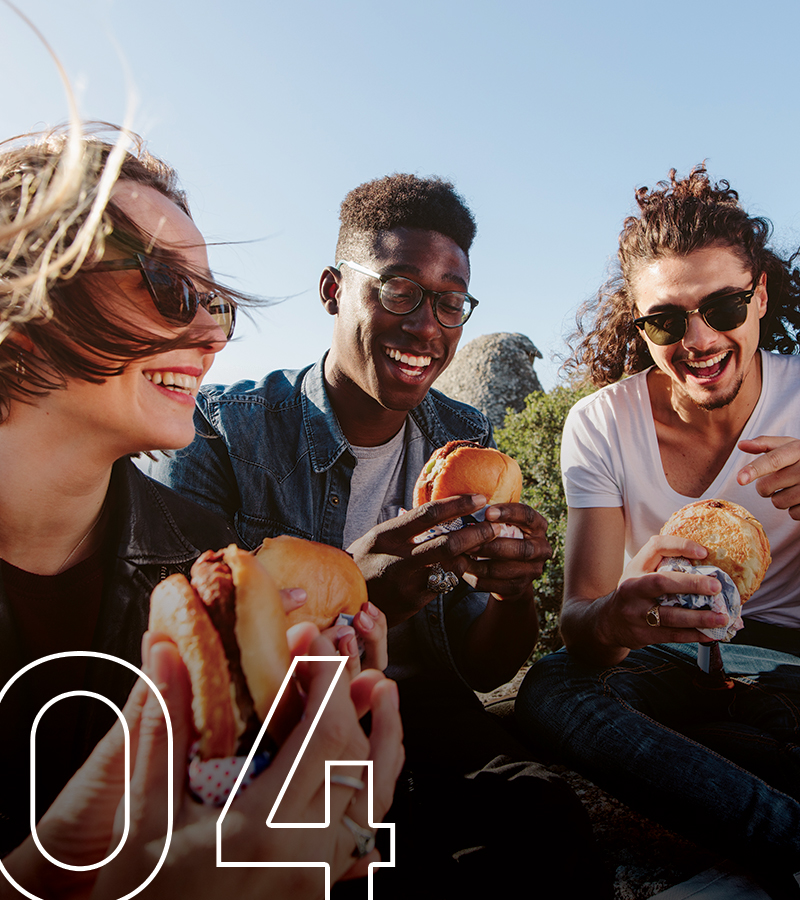Better Nutrition Can Reduce Anxiety
Evidence has long proven the correlation between poor nutrition and impaired mental health. Common results of malnutrition include mood disorders, such as depression, anxiety, and insomnia. Recovery can be tough enough. We don’t need any additional barriers caused by poor diet. A well- balanced diet and proper nutrition can strengthen your recovery and improve your mental health.
It’s also important we understand what we should avoid. The plan here is just that. Meal planning is a critical component to recovery. We all know that we don’t wait for the trigger and then try to come up with a plan to avoid it. At least we shouldn’t. If we’re going to be ready, we need to prepare. As the old saying goes “play that tape all the way through.” Here
are a few practical tips to help kickstart your better eating habits.
#1
Avoid sugar
Stay away from eating too much sugar.
It’s going to make you feel bad.It could also make Simple as that. you feel like you’re having an anxiety attack. Sugary foods cause spikes and drops in your blood sugar. Simply put, a sugar rush can feel just like a panic attack. Pay attention the next time you’re pounding down that bag of Sweet n’ Sour Patch Kids. Your mom was right. Those kids are a bad influence. If you hang with them, it will inadvertently cause some negative consequences.
Plan for it.
Don’t skip meals and be sure to eat healthy proteins and fats.
If sugar is your thing, it’s really important that you don’t skip meals. Sugar cravings can be a result of blood sugar imbalance. This can be caused by the simple habit of skipping meals. We can get around that urge by eating some protein and healthy fats. The amino acids found in protein help build brain chemicals that make us feel good, like dopamine. When we skip meals, we see the exact opposite reaction. Sugar imbalance can feel very much like nervousness and can cause irritability.
Add healthy protein to your meals and snacks. Include lean meats, fish, eggs, beans, lentils, nuts and seeds. Healthy fats are in things like fish, poultry, nuts, seeds, avocados, milk, yoghurt, cheese and eggs. Your brain needs fatty acids (such as omega-3 and omega-6) to keep it working well. So rather than avoiding all fats, it’s important to eat the right ones.
#2
Choose fresh food over processed foods
Limit your daily intake of highly processed foods.
We’re talking things made in a factory and packaged to sit on your shelf for a while. Are you one of those folks that brag about eating foods with a two-year expiration date? Or that guy that swears it won’t hurt you if you do? Considering most processed foods have undergone a substantial modification, their nutritional value is often dramatically altered. Processing results in the striping away of nutrients. This is caused by the addition of chemicals that allow for that extended shelf life.
This process not only lessens the nutrients, but also makes it hard on the system to digest. This creates spikes and drops in your blood sugar that can feel like a panic attack. It’s not always easy to make the connection. We eat a meal and later we feel anxious. Have you noticed that most of us seem to feel better in the summer? We’re far more likely to consume a greater amount of fresh seasonal foods. We feel better when we eat real unprocessed foods.
Plan for it.
Choose slow-release energy foods to help maintain your sugar levels.
In season and out of season, our job is to be ready. Don’t wait until you feel sluggish or worn out to gain some energy. Plan ahead and build a habit of eating foods that provide long lasting energy. Slow-release energy foods include whole wheat pasta, rice, rolled oats, quinoa, nuts, seeds, and veggies. Protein rich foods are a safe bet. Proteins leave you feeling fuller for longer because their complex structures take longer to digest.
#3
Stay hydrated
This means water people!
There is no better substitute for the good ol’ fashioned H₂O, Bobby Boucher. The stress you’re putting on your body on a daily basis while in recovery is astounding. Don’t be surprised if your body needs more water. You’re not alone either. Seventy five percent of Americans walk around chronically dehydrated.
Energy drinks don’t count. Caffeine is in tea, coffee, chocolate, cola and other manufactured energy drinks. Caffeine is a stimulant. This means it’ll give you a quick burst of energy, but then leave you anxious and depressed. It can even disturb your sleep or give you withdrawal symptoms if you stop suddenly. If you drink tea, coffee or cola, try switching to decaffeinated versions. You might feel noticeably better quite quickly if you drink less caffeine or avoid it altogether.
Plan for it.
Don’t mistake symptoms of dehydration for that of chemical craving.
Chronic headaches are usually a great sign of dehydration. When you’re dehydrated, water is being pulled from your head to feed the body. This can also make you feel dizzy, lightheaded, fatigued or have low concentration. Dehydration can also create heart palpitations and irregular heartbeats. The next time you’re feeling on-edge in either your chest or head, drink some water and see how you feel.

